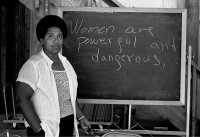LGBTQI
Articles tagged with LGBTQI
Tag Archive
- A Invenção do Outro
- acting
- Afro-Port
- Alcindo Monteiro
- Ana Paula Tavares
- Angolan
- art as activism
- Atlas da Solidão
- bell hooks
- Bibliotera
- Black body
- black power
- brazilian film
- Calouste Gulbenkian Foundation
- Cham
- conclusão
- contemporary dance
- coragem
- crioulo
- cuban communist party
- cultural diversity
- Dakar
- DAMARA INGLÊS
- Danças africanas
- decolonial studies
- democratic participation
- discoveries
- e a Raquel da Silva. Menciono também de passagem: Homi Bhabha
- eleições
- environmental sustainability
- Epstein
- escravo
- estudantes
- EUA
- forgetting
- Frantz Fanon
- General D
- geração 80
- glotophobia
- guerra civil
- Harare
- imagination
- immigrant
- interculturalit
- Jahmek Contemporary Art
- jewish culture
- Joseph Gai Ramaka
- judith butler
- jungle
- labourers
- Ligue arabe
- literature
- Louise Narbo
- lucio lara
- Lula
- Malangatana
- mare nostrum
- mil e uma noites
- mozambican artists
- música angolana
- myth
- nacionalismo
- Negro
- Nova Lisboa
- Orlando Pantera
- paintings
- pan African & arts festival
- pandemic
- pánu di téra ; Cape Verde; textiles; fashion design; globalization; identity
- paraíso
- patriarchy
- património
- Pedro Pinho
- perfomance
- performs
- politics of memory
- Portugal
- programation
- reverse racism
- rock art
- Romuald Hazoumé
- RUI MAGALHÃES
- S.Tomé
- São Tomé and Príncipe
- Sexual Misconduct in Academia
- Slavery
- social rights
- Sophiatou Kossoko
- sorcery
- south south
- statues
- Steve McQueen
- Sudan
- Teatro Praga
- technologies
- Terra Batida
- turismo
- visual production
- worldwide artists
- “(Re)membering
 Audre Lorde asks, “What does it mean when the tools of a racist patriarchy are used to examine the fruits of that same patriarchy?” Lorde’s critique of hierarchies within what is then a predominantly white, middle-class, heteronormative, able-bodied second-wave feminism invites reevaluation of the chalk circles of individual identity that fix structural inequality and prevent viable liberation from taking shape. An existentialism disconnected from dynamic modes of praxis grounded in “the interdependence of mutual (nondominant) differences” fortifies oppression.
Audre Lorde asks, “What does it mean when the tools of a racist patriarchy are used to examine the fruits of that same patriarchy?” Lorde’s critique of hierarchies within what is then a predominantly white, middle-class, heteronormative, able-bodied second-wave feminism invites reevaluation of the chalk circles of individual identity that fix structural inequality and prevent viable liberation from taking shape. An existentialism disconnected from dynamic modes of praxis grounded in “the interdependence of mutual (nondominant) differences” fortifies oppression. 